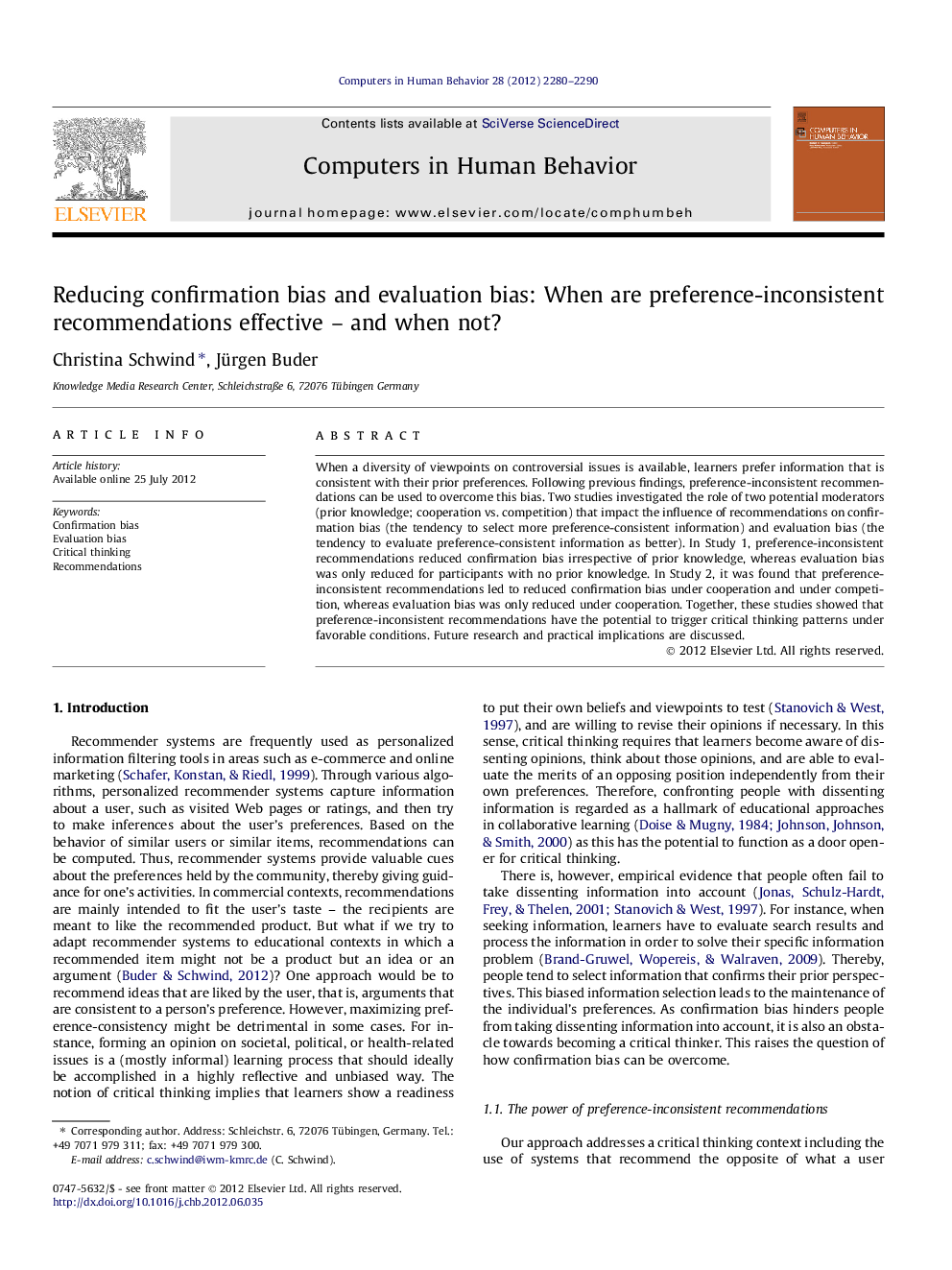| Article ID | Journal | Published Year | Pages | File Type |
|---|---|---|---|---|
| 351315 | Computers in Human Behavior | 2012 | 11 Pages |
When a diversity of viewpoints on controversial issues is available, learners prefer information that is consistent with their prior preferences. Following previous findings, preference-inconsistent recommendations can be used to overcome this bias. Two studies investigated the role of two potential moderators (prior knowledge; cooperation vs. competition) that impact the influence of recommendations on confirmation bias (the tendency to select more preference-consistent information) and evaluation bias (the tendency to evaluate preference-consistent information as better). In Study 1, preference-inconsistent recommendations reduced confirmation bias irrespective of prior knowledge, whereas evaluation bias was only reduced for participants with no prior knowledge. In Study 2, it was found that preference-inconsistent recommendations led to reduced confirmation bias under cooperation and under competition, whereas evaluation bias was only reduced under cooperation. Together, these studies showed that preference-inconsistent recommendations have the potential to trigger critical thinking patterns under favorable conditions. Future research and practical implications are discussed.
► Confirmation bias and evaluation bias hinder unbiased opinion formation. ► Preference-inconsistent recommendations can reduce confirmation bias. ► Two studies investigated potential moderators for this effect. ► Prior knowledge and cooperation/competition were identified as moderators.
